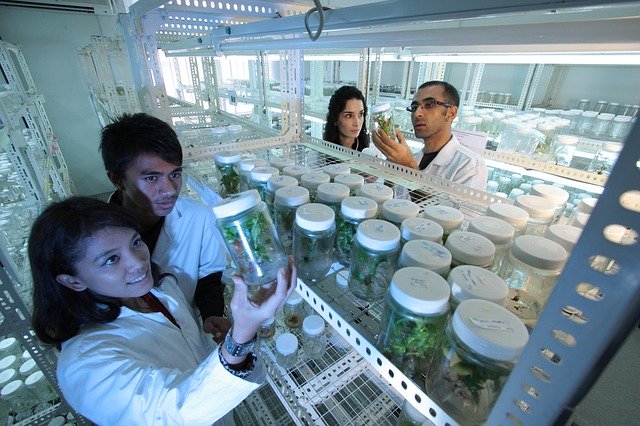September marks Suicide Prevention Month, a time dedicated to raising awareness, fostering understanding, and promoting action to prevent suicide. It is a call to come together and address one of the most pressing public health crises of our time. Suicide affects millions of people globally, leaving a deep and lasting impact on individuals, families, and communities. To truly understand and address this issue, we must explore it from a multifaceted perspective — incorporating medical, psychological, and spiritual viewpoints.
The Medical Perspective on Suicide
From a medical standpoint, suicide is often rooted in mental health disorders. According to the World Health Organization (WHO), nearly 800,000 people die by suicide each year, making it one of the leading causes of death worldwide. Conditions such as depression, bipolar disorder, schizophrenia, and substance abuse disorders are among the most significant contributors to suicide risk.
Biological Factors
Research in neuroscience has shown that certain biological factors may predispose individuals to suicidal thoughts and behaviors. Changes in neurotransmitters like serotonin, which regulates mood, have been linked to suicidal ideation. Imbalances in brain chemistry, often aggravated by chronic stress, trauma, or genetic vulnerabilities, can lead to a state of hopelessness and despair.
Chronic physical health conditions, like chronic pain, terminal illnesses, or traumatic injuries, can also increase the risk of suicide. The intersection of physical and mental health is crucial, as prolonged suffering or the inability to find relief can push individuals toward considering suicide as a means of escaping their pain.
Psychological and Emotional Factors
Suicide is deeply intertwined with psychological distress. In the field of mental health, suicide is viewed as a symptom of unbearable emotional pain, often associated with feelings of hopelessness, worthlessness, or isolation. Cognitive distortions, where individuals see no possibility of improvement in their situation, can trap them in a cycle of negative thinking. This distorted perception, combined with poor coping mechanisms, can escalate suicidal ideation.
In many cases, suicidal individuals feel like they are a burden to those around them, compounding their suffering. The stigma surrounding mental illness also plays a significant role, as individuals may hesitate to seek help due to fear of judgment or shame.
Suicide Prevention from a Mental Health Perspective
Preventing suicide requires a multifaceted approach that addresses the underlying causes while offering hope, support, and practical intervention. Several evidence-based interventions have proven effective in reducing suicide risk.
1. Psychotherapy and Counseling
Cognitive Behavioral Therapy (CBT) and Dialectical Behavior Therapy (DBT) are two of the most effective therapeutic interventions for individuals experiencing suicidal thoughts. These therapies focus on identifying and changing distorted thought patterns, developing emotional regulation skills, and improving interpersonal relationships. They provide individuals with tools to navigate life’s challenges without resorting to suicide.
2. Medication
Antidepressants, mood stabilizers, and antipsychotic medications are commonly prescribed for individuals with mood disorders or psychiatric conditions. Proper management of these conditions can significantly reduce suicidal ideation. However, close monitoring is crucial, especially during the initial stages, as some medications may increase suicidal thoughts in certain populations, particularly adolescents.
3. Crisis Intervention
Suicide hotlines, crisis intervention services, and emergency mental health care play a vital role in immediate suicide prevention. These services offer a lifeline to individuals in acute distress, providing immediate support and de-escalation.
4. Community Support and Education
Educating the public about the signs of suicide risk and encouraging open conversations about mental health can help reduce stigma and promote earlier intervention. Family, friends, and community members can play a crucial role in identifying those at risk and offering support.
The Role of Spirituality and Metaphysical Understanding in Suicide Prevention
While suicide is often viewed through medical and psychological lenses, spirituality and metaphysical perspectives offer an additional layer of understanding and healing for individuals in crisis. For many, spiritual exploration provides a sense of meaning, connection, and hope that transcends their immediate struggles.
1. The Search for Meaning and Purpose
One of the most powerful aspects of spirituality is its ability to offer a sense of purpose. Suicidal ideation is often marked by a profound sense of meaninglessness, and spiritual practices — whether rooted in religion or personal beliefs — can help restore purpose. From a metaphysical standpoint, individuals may be grappling with their soul’s journey or feeling disconnected from their divine mission. Exploring one’s life through a spiritual lens can provide clarity, helping individuals to frame their struggles as part of a larger spiritual path.
2. Connection and Belonging
Spiritual communities can serve as a vital support network for individuals grappling with mental health challenges. Whether through organized religion, meditation circles, or other forms of spiritual gatherings, individuals can find connection and belonging, combating the isolation many feel during suicidal crises. Many metaphysical beliefs emphasize interconnectedness and the importance of unity with all life, which can provide individuals with a sense of oneness and reduce feelings of alienation.
3. Hope, Transcendence, and the Soul’s Journey
Spiritual traditions often emphasize hope, redemption, and the possibility of transformation, even in moments of great darkness. From a metaphysical perspective, life challenges, including suicidal thoughts, may be seen as part of the soul’s journey toward greater understanding, healing, and growth. These beliefs can be a powerful counterbalance to the hopelessness that fuels suicidal thoughts. Practices like meditation, prayer, mindfulness, and energy healing offer practical tools for calming the mind, deepening self-awareness, and restoring inner peace.
Many spiritual teachings emphasize that life, even in its most painful moments, offers opportunities for growth and transcendence. Understanding the soul’s mission or seeking guidance from spiritual mentors can provide solace during times of crisis, offering a broader view of life and its challenges.
How to Help: Practical and Spiritual Steps for Suicide Prevention
Whether you’re a mental health professional, a family member, or a concerned friend, knowing how to respond to someone who may be suicidal is critical. Here are some actionable steps, both practical and spiritual:
- Listen Non-Judgmentally: Create a safe space for the person to share their feelings without fear of judgment. Spiritual empathy can be powerful in this moment, offering validation of their experience and reinforcing that they are not alone in their struggle.
- Ask Directly: Don’t be afraid to ask the individual if they are thinking about suicide. This opens the door for an honest conversation about their struggles. A gentle spiritual approach could include encouraging them to explore what their soul might be seeking or how they can find meaning in their pain.
- Remove Means: If someone is at immediate risk, removing access to lethal means (e.g., firearms, medications) can prevent impulsive acts of suicide.
- Encourage Professional and Spiritual Help: Guide the individual toward professional mental health services and, if appropriate, spiritual support. A spiritual counselor, healer, or community leader can provide additional guidance, helping them reconnect with their higher purpose.
- Check-In Regularly: Keep in touch with the person after the crisis has passed. Let them know that you care about their well-being and spiritual growth.
Conclusion: A Call to Compassion, Action, and Spiritual Understanding
Suicide is a preventable tragedy, but it requires a concerted effort from individuals, communities, healthcare systems, and spiritual support networks. By fostering open conversations, supporting mental health initiatives, and offering compassionate, non-judgmental care, we can save lives.
For anyone struggling with suicidal thoughts, know that help is available — both in practical and spiritual forms. You are not alone in your pain. Reaching out for help is the first step toward healing, and there is hope for a brighter tomorrow, both in this life and beyond.




